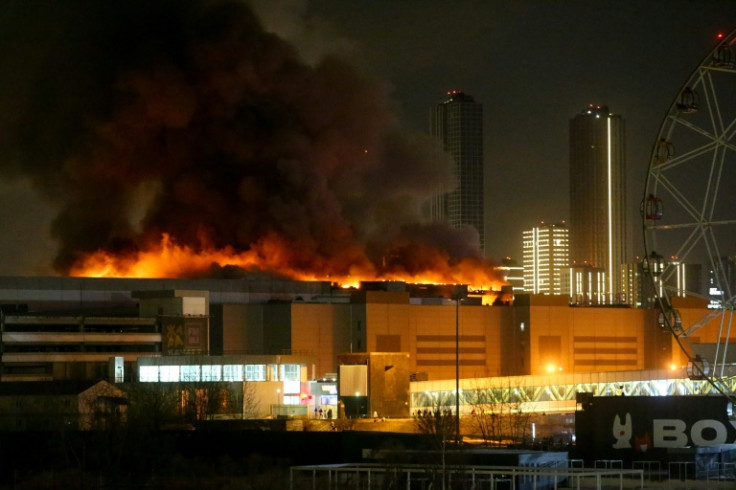
Russia's foreign ministry swiftly labeled the attack as a "terrorist attack," signaling the gravity of the situation. Reports indicate that a group of up to five unidentified assailants carried out the assault, which unfolded with alarming speed and brutality.
Eyewitness accounts paint a grim picture of chaos and terror as several gunmen stormed the concert hall, unleashing a hail of gunfire with automatic weapons. The ensuing mayhem saw an explosive device, believed to be a grenade or incendiary bomb, ignite a fire within the hall, engulfing much of the building in flames and causing the roof to partially collapse, The Guardian reported.
Emergency responders sprang into action, with more than 70 ambulance teams dispatched to the scene to tend to the wounded and evacuate survivors. However, the scale of the devastation posed significant challenges to rescue efforts.
In the aftermath of the attack, public events in Podolsk, near Moscow, were swiftly canceled as a precautionary measure, while the mayor of Moscow took the unprecedented step of suspending all "sports, cultural, and other mass events" in the city for the weekend, barrons.com reported.
The shockwaves of this horrific incident reverberated far beyond Russian borders, prompting expressions of concern and condemnation from global leaders. The White House, though limited in its initial assessment, expressed solidarity with the victims and emphasized the need for vigilance and caution.
Amid heightened tensions, the U.S. State Department reiterated its warning to American citizens in Moscow to avoid large gatherings and remain vigilant. This cautionary advisory follows earlier alerts of potential extremist threats targeting such events in the capital.
This is a developing story. Stay tuned for the latest updates.







